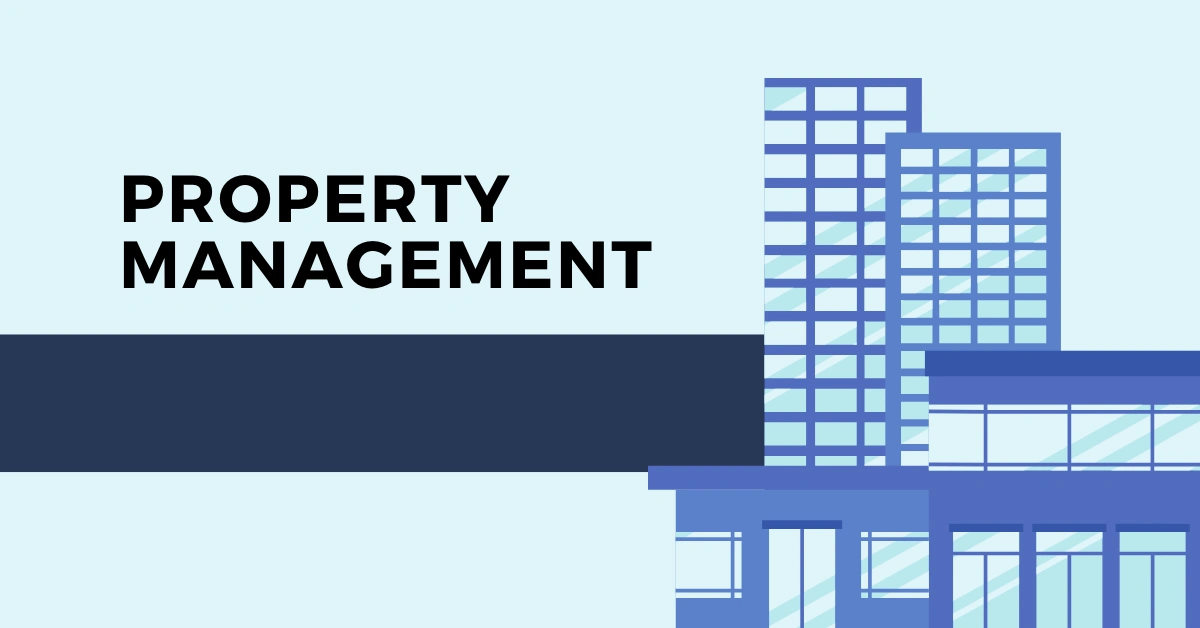Table of Content
▲- 1. Understand Local Real Estate Laws
- 2. Set a Competitive Rent Price
- 3. Screen Tenants Thoroughly
- 4. Create a Strong Rental Agreement
- 5. Conduct Regular Property Inspections
- 6. Maintain a Positive Tenant Relationship
- 7. Stay Organized with Property Management Software
- 8. Handle Maintenance Requests Promptly
- 9. Prepare for Vacancies
- 10. Secure the Property with Proper Insurance
- 11. Understand Your Tax Obligations
- 12. Build a Maintenance Network
- 13. Keep Financial Records Organized
- 14. Plan for Long-Term Upgrades
- 15. Hire a Professional Property Management Company
- Conclusion
Property management is an essential part of real estate investment. Whether you own a single rental property or manage a portfolio, effective property management is key to ensuring smooth operations, maximizing rental income, and maintaining the property's value. In India, where the real estate market is diverse and dynamic, managing properties efficiently comes with its own set of challenges, from legal regulations to tenant management and maintenance.
In this comprehensive guide, we will walk you through 15 essential property management tips in India that can help you handle your property efficiently and ensure long-term success.
1. Understand Local Real Estate Laws
One of the first things every property manager or owner needs to do is familiarize themselves with the local laws governing real estate in India. Legal compliance is crucial to avoid any future disputes or legal issues.
- The Rent Control Act: Varies from state to state and regulates rent pricing, security deposits, and tenant rights.
- RERA (Real Estate Regulatory Authority): This act brings transparency to real estate transactions, protecting the interests of buyers, sellers, and tenants.
Pro Tip: Always consult a legal advisor to ensure your rental agreements comply with local regulations. Keeping up-to-date with changing laws can prevent any unforeseen legal complications.
2. Set a Competitive Rent Price
Setting the right rent price is critical to attracting tenants while maximizing income. Too high, and you may face long vacancy periods; too low, and you miss out on potential revenue.
- Research Local Market: Understand the prevailing rent rates for similar properties in your area.
- Factor in Property Amenities: If your property offers additional benefits like parking, security, or proximity to schools and transportation, you can charge a slightly higher rent.
Pro Tip: Review your rent prices regularly to ensure they remain competitive but still profitable.
3. Screen Tenants Thoroughly
Choosing the right tenants is one of the most important aspects of property management. A bad tenant can cause significant damage to your property or delay rent payments.
- Background Checks: Verify the tenant’s employment, previous rental history, and credit score.
- Interview Tenants: Meeting prospective tenants can give you an idea of their reliability and suitability.
Pro Tip: Always have a written rental application that includes basic personal and financial information for verification purposes.
Also Read: How to reduce kitchen heat in summer?
4. Create a Strong Rental Agreement
A well-drafted rental agreement is essential to protect both the property owner and tenant. It should clearly outline the terms of the lease, such as rent amount, payment date, deposit, maintenance responsibilities, and any specific property rules.
- Security Deposit: Mention the security deposit amount and the terms for its return.
- Tenant Responsibilities: Clearly state who is responsible for maintenance and repairs.
Pro Tip: Ensure the agreement is legally binding by getting it drafted or reviewed by a qualified lawyer.
5. Conduct Regular Property Inspections
Regular inspections of your property can help you spot any maintenance issues early on, ensuring the property remains in good condition and preventing costly repairs later.
- Schedule Quarterly Inspections: Check for wear and tear, plumbing, electrical issues, and overall cleanliness.
- Document with Photos: Keep a photographic record of the property condition during each inspection to resolve future disputes.
Pro Tip: Make it clear in your rental agreement that inspections will be conducted periodically, and give prior notice to tenants.

6. Maintain a Positive Tenant Relationship
Building a good relationship with your tenants can lead to longer tenancies and fewer disputes. Happy tenants are more likely to take care of the property and make timely rent payments.
- Be Responsive: Address tenant concerns and repair requests promptly.
- Respect Privacy: Always notify tenants before entering the property and respect their space.
Pro Tip: Regularly check in with tenants to ensure they are satisfied with their living situation, but don't invade their privacy.
7. Stay Organized with Property Management Software
Technology can make property management much easier by automating tasks like rent collection, lease tracking, and tenant communications. Property management software is particularly useful if you're managing multiple properties.
- Rent Collection: Automate rent reminders and collections through digital payment systems.
- Tenant Communications: Use software to manage maintenance requests and keep track of conversations with tenants.
Pro Tip: Explore popular property management platforms like MyGate, RentCues, or NoBroker for automating tasks.

8. Handle Maintenance Requests Promptly
Timely maintenance is key to keeping your tenants happy and your property in good shape. Failing to address repair requests can lead to bigger problems and increase tenant turnover.
- Establish a Maintenance Protocol: Have a clear process in place for tenants to report issues.
- Emergency Repairs: Always prioritize emergency repairs such as plumbing, electrical issues, or safety concerns.
Pro Tip: Regularly set aside funds from rental income for unexpected repair costs.
Also Read: How to clean a gas stove at home?
9. Prepare for Vacancies
Vacancies are inevitable in rental property management, but having a plan in place can minimize their impact on your income.
- Advertise Early: Start marketing your property well before the current tenant moves out.
- Screen Prospective Tenants: Don't rush into accepting the first tenant who applies; take the time to find the right one.
Pro Tip: Consider offering short-term discounts or incentives, like one month rent-free, to attract tenants faster during low-demand periods.
10. Secure the Property with Proper Insurance
Having comprehensive property insurance is a must for any landlord or property manager. This can protect you against natural disasters, fire, theft, and tenant damage.
- Compare Insurance Plans: Review different plans to ensure you have adequate coverage for both the structure and liability.
- Tenant Insurance: Encourage tenants to have renter’s insurance to protect their personal belongings.
Pro Tip: Review your insurance policy annually to ensure it meets current property values and risks.
11. Understand Your Tax Obligations
Property owners are liable to pay taxes on their rental income. Make sure you understand the applicable taxes and deductions you can claim.
- Rental Income Tax: The income generated from renting out property is taxable. Ensure that you report all rental income accurately.
- Deductions: Maintenance, repairs, and property taxes can often be claimed as deductions to lower your tax liability.
Pro Tip: Consult a tax advisor to fully understand the tax implications of property ownership and management in India.
12. Build a Maintenance Network
Having a reliable team of contractors, plumbers, electricians, and other service providers on speed dial can make property management much easier.
- Vet Service Providers: Make sure you work with reputable contractors who offer fair pricing and quality service.
- Negotiate Annual Contracts: Lock in rates by negotiating annual maintenance contracts with your service providers.
Also Read: 10 common ‘myths’ about electronic locks, busted
Pro Tip: Always have backup service providers in case of emergencies or if your primary contractor is unavailable.
13. Keep Financial Records Organized
Accurate financial record-keeping is crucial for managing your property’s profitability. From rent collection to maintenance expenses, keeping track of every transaction will help you monitor your income and expenses.
- Use Accounting Software: Opt for property management software that includes financial tracking features.
- Prepare Annual Budgets: Budget for recurring expenses like property tax, insurance, and repairs.
Pro Tip: Keeping organized financial records will also simplify your tax filings and help you make informed investment decisions.
14. Plan for Long-Term Upgrades
Investing in periodic upgrades can increase the value of your property and allow you to charge higher rents.
- Energy-Efficient Appliances: Installing energy-efficient appliances can attract eco-conscious tenants and reduce utility costs.
- Interior Renovations: Consider periodic painting or upgrading fixtures to maintain the property’s appeal.
Pro Tip: Focus on cost-effective upgrades that will offer a good return on investment.
15. Hire a Professional Property Management Company
If managing your property becomes overwhelming, or if you own multiple properties, hiring a professional property management company might be the right solution. They can handle everything from tenant screening to maintenance, freeing up your time.
- Evaluate Costs: Management companies charge a fee, usually a percentage of the monthly rent, so factor this into your budget.
- Review Reputation: Check reviews and references before hiring a property management firm.
Pro Tip: If you’re managing multiple properties, the time saved by hiring a professional can outweigh the management fees.
Conclusion
Effective property management in India requires a strategic approach that combines legal knowledge, tenant relations, financial oversight, and regular maintenance. By following these 15 property management tips, property owners can not only improve tenant satisfaction but also protect their investment and ensure steady returns. Whether you choose to manage the property yourself or hire a professional firm, these guidelines will help you stay organized and successful in the competitive Indian real estate market.
Also Read: Bathroom Sink Cleaning Made Easy: A Comprehensive Guide for Indian Homes









Ans 1. Property managers handle tenant screening, rent collection, property maintenance, and legal compliance, ensuring the smooth running of rental properties.
Ans 2. Conduct regular inspections, address maintenance issues promptly, and build a positive relationship with your tenants to ensure the property stays well-maintained.
Ans 3. Yes, a legally binding rental agreement protects both the tenant and the landlord and outlines the terms and responsibilities of the lease.
Ans 4. RERA ensures transparency in real estate transactions and safeguards the interests of buyers, sellers, and tenants by regulating property management practices.
Ans 5. Research local rent rates, consider property amenities, and factor in your costs to set a competitive rent price.